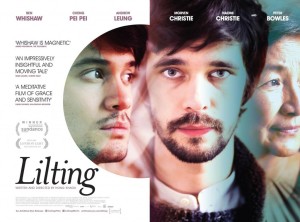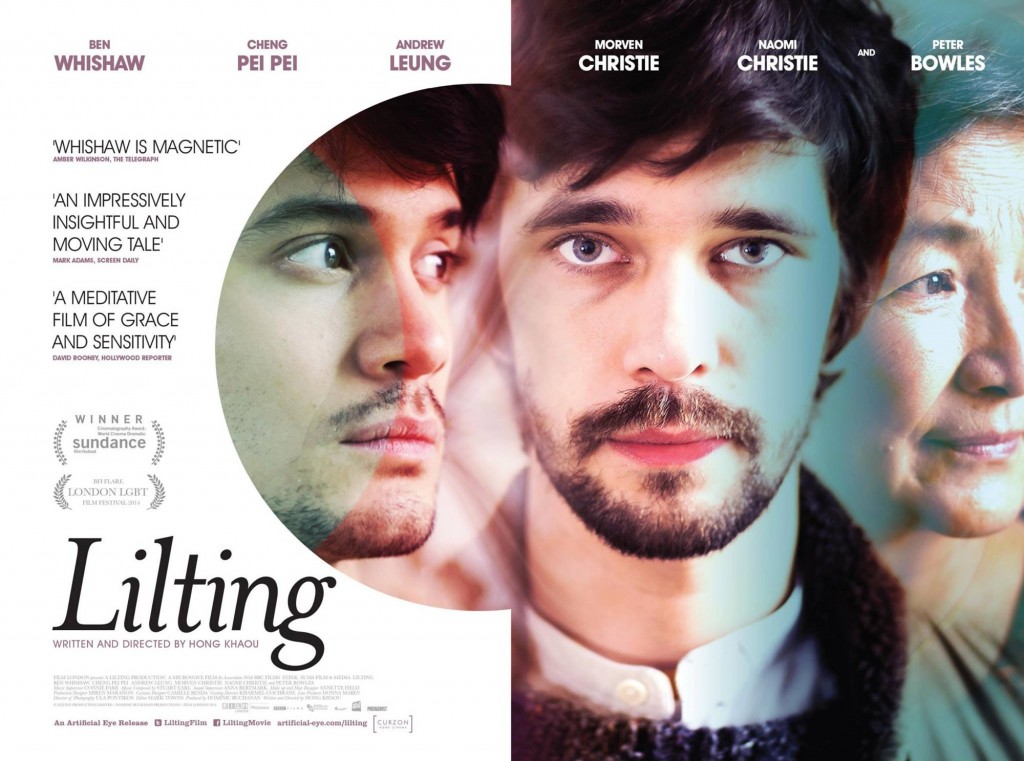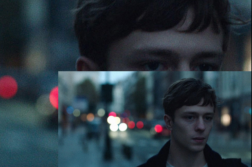 ANGLO-CAMBODIAN DIRECTOR Hong Khaou’s drama Lilting certainly has elements to draw both a GLBT crowd and that dying demographic: “art film” connoisseurs. While set in London, the dialogue is in Mandarin and English; barriers of both language and culture are at the heart of its story.
ANGLO-CAMBODIAN DIRECTOR Hong Khaou’s drama Lilting certainly has elements to draw both a GLBT crowd and that dying demographic: “art film” connoisseurs. While set in London, the dialogue is in Mandarin and English; barriers of both language and culture are at the heart of its story.
A Cambodian-Chinese émigré, Junn, who has successfully raised her only son, Kai, as a genial, hip, fully assimilated English lad, finds herself bereft by his sudden death. She feels abandoned inside a residence for the elderly to which Kai believed he was temporarily assigning her. The young man, Richard, who comes to visit her—in the guise of being Kai’s roommate and “best friend”—was actually Kai’s lover.
Meanwhile, Junn, having no command of English despite her long remove from China, allows a senior admirer and fellow resident, Alan, a solid, even handsome but lovelorn Englishman, to chastely court her. Richard decides their budding romance needs some goosing. He brings along on his visits a hired translator, an attractive young woman named Vann, whose dual translations in Mandarin and English attempt to bridge the communication gap between the elderly residents, but this ultimately complicates matters between them.
For Richard and Junn, shared memories of Kai and each one’s proprietary feelings produce a competition for retrospective ownership. Flashback sequences fill us in on these matters. Richard has the upper hand in this, if only because he knows more about Kai, the beautiful man whose bed he shared. Still, Junn exerted a powerful pull on her son; it was in part guilt over placing her in an elderly residence that was eating at Kai. This threatened his relationship with Richard. The lovers were willing to have Junn live with them, but this could not happen without Kai admitting to his mother that he was gay and that Richard was his lover. While on the precipice of this admission, disaster struck, but we only hear about the specifics of this tragedy late in the film. Off-stage and unseen, it remains an abstract concept, not a vital moment in which the audience can share in the characters’ shock and experience an emotional catharsis.
First-time feature film director and screenwriter Hong Khaou, a Cambodian refugee who arrived in England in the 1980s, has generalized his story too much, as if his characters were symbols in an allegory rather than people living in distinct circumstances. Plot points—whether spoken of in dialogue or dramatized—are too often skipped over quickly or given a rather squishy presentation. The story lacks detail and texture: What did Kai do while alive? What does Richard do in his life when he is away from the senior residence visiting Junn? Is he merely Vann’s employer or have they some prior familiarity? There is something not quite credible in the way translator Vann throws herself so willingly into the fray among three parties who have no shared language—and how she risks going too far in her task by editorializing as she translates.
What raises this thinly detailed screenplay above the level of a first effort is undoubtedly the strength of its ensemble and its assured visual style; it won the award for Best Cinematography at this year’s Sundance Film Festival. Richard is played by Ben Whishaw (Brideshead Revisited, Skyfall, Cloud Atlas); he gives a strong account of a young man in the thrall of a serious relationship who loses his emotional center of gravity through sudden loss. (Whishaw somewhat reluctantly came out himself in the last year or so, after much speculation about his sexuality.)
Mine will perhaps be a minority opinion, but I wish Lilting wasn’t quite so emotionally restrained, so self-consciously artful, so—tasteful. A bit of over-the-top Douglas Sirkian melodrama might have kicked this material into higher gear. As it is, Hong Khaou certainly has a mix of potent ingredients with which to work, but the resulting meal feels less than fully cooked.
Lilting
A film by Hong Khaou
Allen Ellenzweig is a frequent contributor to the GLR.






